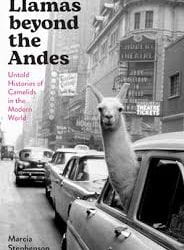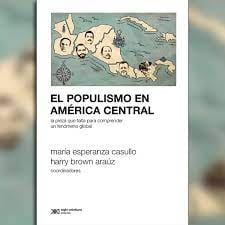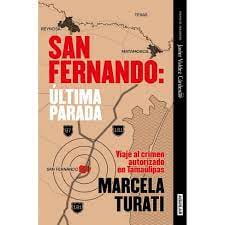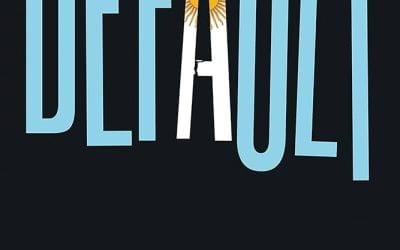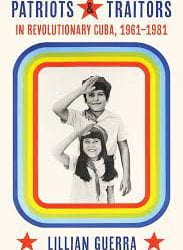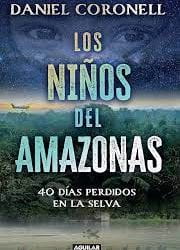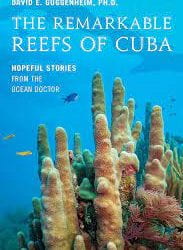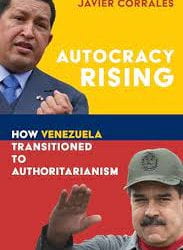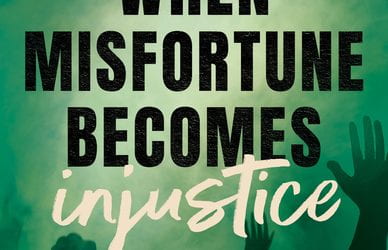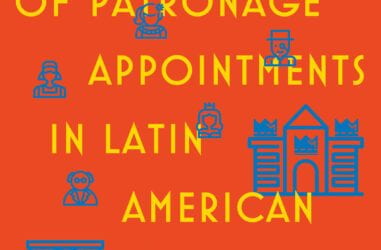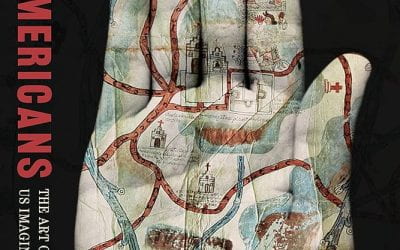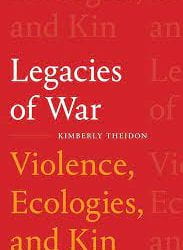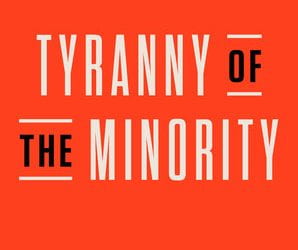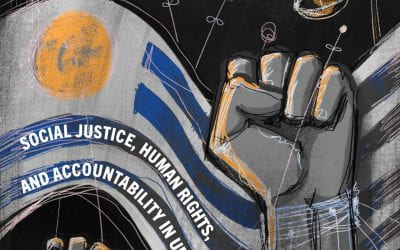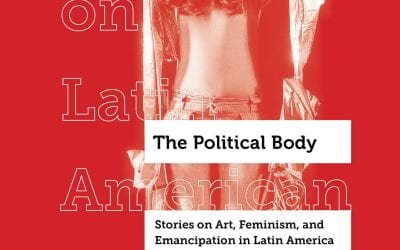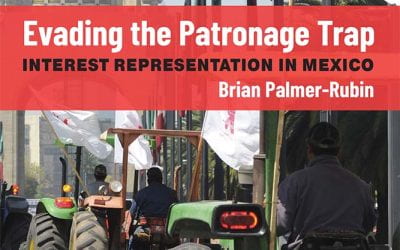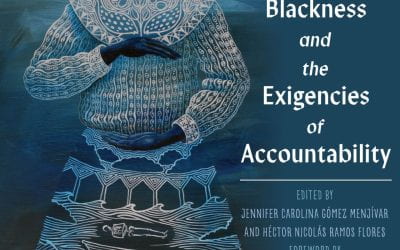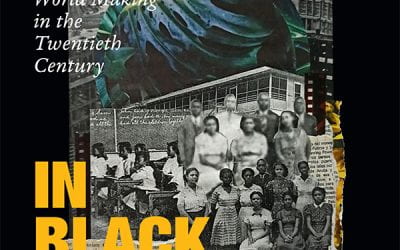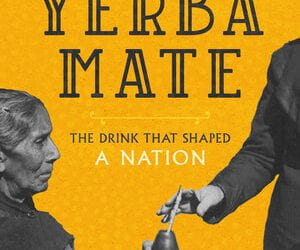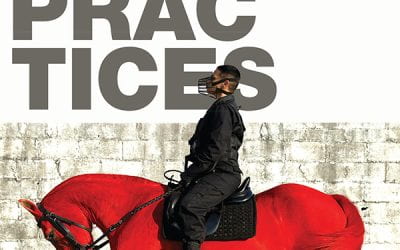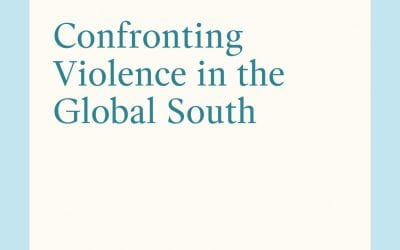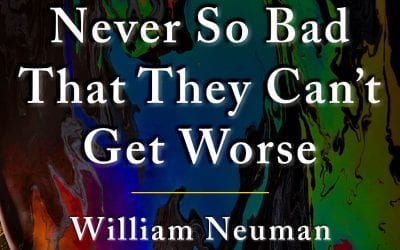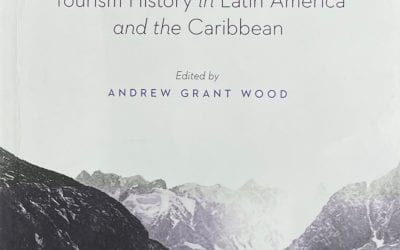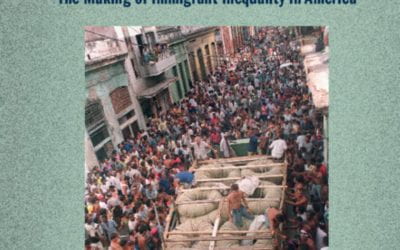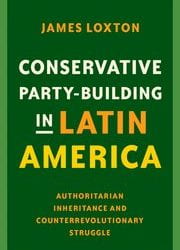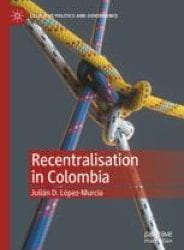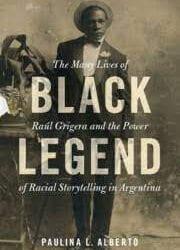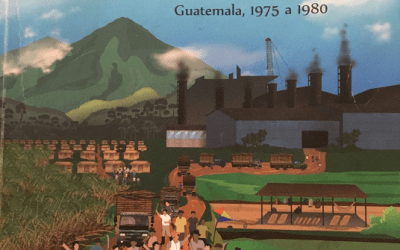The new ReVista book review section features reviews of recent books about Latin America, the Caribbean and the Latinx community in all disciplines.
A Review of A Promising Past: Remodeling Fictions in Parque Central, Caracas
A beacon of modern urban transformation and a laboratory of social reproduction, Parque Central in Caracas is a monumental enclave of 20th-century Venezuelan oil-fueled progress. The monumental urban structure also symbolizes the enduring architectural struggle against entropy, acute in a country where the state routinely neglects its role in providing sustained infrastructural maintenance and social care. Like other ambitious modernizing projects of the Venezuelan petrostate, Parque Central’s modernity was doomed due to the state’s dependence on the global oil economy’s cycles of boom and bust.
A Review of Bodies Found in Various Places
This bilingual anthology of Elvira Hernández, translated by Daniel Borzutzky and Alec Schumacher and published by Cardboard House Press, offers a comprehensive entry point into the work of the Chilean poet. The translators’ preface offers a valuable introduction that provides important context to her work and explains aspects of her poetry present in the volume, such as Hernández’s self-effacing “ethics of invisibility,” an ars poetica in which the poems stand in front while the poet hangs back, in a call to observe rather than to be observed. In this sense, Hernández has long written from the edges of Chile’s public life, partly by choice, partly by necessity: her birth name is Rosa María Teresa Adriasola Olave, but she adopted the pseudonym of Elvira Hernández under the Pinochet dictatorship.
A Review of An Ordinary Landscape of Violence
When first reading the title, An Ordinary Landscape of Violence, I asked myself if there is really anything “ordinary” about a landscape of violence? Preity R. Kumar argues that violence is endemic to Guyana’s colonial history and is something that women loving women (WLW) contend with and resist in their personal and public lives.
A Review of Lula: A People’s President and the Fight for Brazil’s Future
André Pagliarini’s new book arrives at a timely moment. During the summer of 2025, when the book was released, the United States began engaging in deeper debates about Brazil’s political situation. This shift was tied to the U.S. government’s decision to impose 50% tariffs on Brazilian products—the highest level ever applied to another country, matched only by India. In a letter to President Lula, Donald Trump’s administration justified the measure by citing a trade deficit with Brazil. It also criticized the South American nation for prosecuting one of Washington’s ideological allies, former president Jair Bolsonaro, on charges of attempting a coup d’état. Sentenced by Brazil’s Supreme Court to just over 27 years in prison, the right-wing leader had lost his 2022 reelection bid to a well-known leftist figure, Lula da Silva, and now stands, for many, as a global example of how a democracy can respond to those who attack it and attempt to cling to power through force.
A Review of The Archive and the Aural City: Sound, Knowledge, and the Politics of Listening
Alejandro L. Madrid’s new book challenged me, the former organizer of a musical festival in Mexico, to open my mind and entertain new ways to perceive a world where I once lived. In The Archive and the Aural City: Sound, Knowledge, and the Politics of Listening, he introduced me to networks of Mexico City sound archive creators who connect with each other as well as their counterparts throughout Latin America. For me, Mexico was a wonderland of sound and, while I listened to lots of music during the 18 years I explored the country, there was much I did not hear.
A Review of The Interior: Recentering Brazilian History
The focus of The Interior, an edited collection of articles, is to “recenter Brazilian history,” as editors Frederico Freitas and Jacob Blanc establish in the book’s subtitle. Drawing on the multiplicity of meanings of the term “interior” (and its sometimes extension, sometimes counterpart: sertão) in Brazil over time and across the country’s vast inland spaces, the editors put together a collection of texts that span most regions, representing several types of Brazilian interiors.
A Review of Central America in the Crosshairs of War; on the Road from Vietnam to Iraq
Scott’s Wallace’s Central America in the Crosshairs of War; on the Road from Vietnam to Iraq is really several books at once that cohere into a magnificent whole. It is the evocative, at times nostalgic, at others harrowing, personal account of a young journalist’s coming of age during his first foreign journalism assignment, always keenly observant and thoughtful. But it also offers a carefully developed analysis of the nature of U.S. foreign policy, at least in those poorer parts of the world where it has intervened militarily or more clandestinely, or heavily supported the wars waged by its clients. Wallace has witnessed these wars both earlier and later in his life, as a citizen and journalist.
A Review of The Lettered Indian: Race, Nation, and Indigenous Education in Twentieth-Century Bolivia
Brooke Larson’s book on the history Indigenous education in Bolivia is a masterpiece. It is deeply researched, beautifully written, a pleasure to read and a gift to historians of Bolivia, education, Indigenous movements and so much more.
A Review of Immigration, Policy, and the People of Latin America: Seven Sending Nations
No one truly wants to leave their homeland.
That’s a saying I’ve heard countless times in two decades of reporting on immigrants and immigration policy in the United States for the Boston Globe and other newspapers. It’s almost conventional wisdom by now — a quiet, often-ignored truth that sits beneath the headlines and political slogans.
A Review of Afrocentroamérica: Entre memoria y olvido
In graduate school at UC Berkeley in the 1980s, I knew that I wanted to work on Central America, on U.S. involvement there, and on social or labor history. What I knew about Central America came from the news, from the Guatemalan and Salvadoran refugees whom I worked with as a volunteer with the East Bay Sanctuary Covenant, and from local solidarity events, visiting speakers and documentaries.
A Review of The Amazon in Times of War
Marcos Colón’s book The Amazon in Times of War offers a compelling collection of essays exposing the physical, economic and institutional violence that devastates the Amazon. He argues that much of this destruction stems from deliberate state policies enacted under former Brazilian president Jair Bolsonaro (2019-2023). Colón not only documents the struggles of Indigenous and other traditional communities but also critiques the role of profit-driven industries such as logging, mining and cattle ranching in the ongoing exploitation of the Amazon and its peoples.
A Review of Historieta Doble: A Graphic History of Participatory Action Research
In 1997, I attended the worldwide Action Research Conference in Cartagena, Colombia. One of the sessions opened a space for action research from industrial settings. I presented a project on learning in a network of small businesses in a region of Norway. A Mexican professor raised his hand after the presentation and said: “Excuse me for being direct, but do we live in the same world?”
A Review of Liberation Theology and Praxis in Contemporary Latin America. As it Was in the Beginning?
The book Liberation Theology and Praxis in Contemporary Latin America assumes great relevance with the shifting landscape of the Catholic Church under Pope Francis, whose papacy has signaled a renewed engagement with many of the themes central to liberation theology. From his emphasis on economic justice and ecological responsibility in Laudato Si’ to his advocacy for oppressed communities, Francis has revived aspects of liberationist discourse that were marginalized under previous pontificates.
A Review of The Return of the Contemporary: The Latin American Novel in the End Times
Latin America, and the world more broadly, has been mired in crisis throughout the first quarter of the 21st century. From economic downturns to ecological disasters to legacies of racism and enslavement, the neoliberal trends of past decades have permeated our daily lives with instability amid longstanding narratives of constant progress. If, as we are told, our society is constantly progressing, why has precarity abounded? In The Return of the Contemporary: The Latin American Novel in the End Times, Nicolás Campisi explores the ways in which contemporary Latin American authors confront these realities, focusing on the genre of the novel.
A Review of Cash, Clothes, and Construction. Rethinking Value in Bolivia’s Pluri-economy
A cottage industry of academic research on Bolivia has flourished over the past twenty years. Unleashed by popular mobilizations and political transformation around the turn of the century, social scientists have dissected and debated Bolivia’s “plurinational” state-building project, which came to define President Evo Morales’s regime (2006-2019). Of course, Bolivia had long been the object of scholarly curiosity, thanks to its robust Indigenous movements, neoliberal experiments in multiculturalism, eruption of anti-global uprisings and the postcolonial turn in public discourse.
A Review of Representing the Barrios: Culture, Politics, and Urban Policy in Twentieth Century Caracas
Rebecca Jarman, in her book, Representing the Barrios: Culture, Politics, and Urban Policy in Twentieth Century Caracas, explores the vibrancy and complexity of Caracas’s barrios. In Caracas, the term barrio refers to self-produced neighborhoods––usually defined as informal settlements––where communities self-organize the construction of their territory with no prior planning but through an incremental yet effective system of organization.
A Review of From South Central to Southside: Gang Transnationalism, Masculinity and Disorganized Violence in Belize City
In 2013, I took a repurposed U.S. school bus from the south of Mexico, my adopted home country, to Belize City. Once across the border, we ended up making a lengthy stop when passengers with pre-purchased tickets found themselves unable to board the crammed vehicle and began to protest the perceived injustice. In the scorching heat, the initial exasperation among locals both on and off the bus quickly turned into visceral anger. The episode would stay with me as I wandered around Belize City, shocked by the generalized poverty.
A Review of Hopped Up, How Travel, Trade, and Taste Made Beer a Global Commodity
About ten years ago, when I arrived at the Cuauhtémoc Moctezuma Brewery in the mountain town of Orizaba, Veracruz, in Mexico, I was excited that the administrator I’d spoken with earlier had arranged a private tour for me. Founded in 1896, the Moctezuma Brewery was saved from bankruptcy when it was bought out by Mexico’s behemoth Cuauhtémoc Brewery in 1985. It is best known globally for its Dos Equis amber lager and for Sol, the light, golden, pilsner-style beer now sold in over 70 countries around the world.
A Review of The Other Border Wars: Conflict and Stasis in Latin American Culture
I remember reading with emotion during my adolescence “Juan López and John Ward,” the poem that the great writer of fantastic literature Jorge Luis Borges dedicated to the Falklands War of 1982. What moved me, I think, was the idea that two young men who could have been friends (united by their love of literature, in addition to belonging to the same generation and sharing the same name) saw each other face-to-face only once, but since that one encounter was during a war, each became both Cain and Abel.
A Review of The Collapse of Panama: The History of the U.S. Invasion and The End of the Dictatorship
Panama has been in the news recently as the target of intimidating and ill-informed remarks by President-elect Donald Trump. Around Christmastime, Trump first accused Panama of charging “exorbitant” fees to U.S. commerce that transits the Panama Canal, which, according to him, was “foolishly” given away to a country that has been shown “extraordinary generosity” by the United States. “If the principles, both moral and legal, of this magnanimous gesture of giving are not followed, then we will demand that the Panama Canal be returned to us, in full, and without question“, threatened Trump, without explaining how he intends to force Panama into surrendering its most beloved asset, one that is at the very heart of its national identity.
A Review of The Sandinista Revolution: A Global Latin American History
One afternoon in 2014, driving along a dirt road that snaked through countryside several hours outside of the Nicaraguan capital of Managua, I came across an ancient woman on foot, carrying a load of firewood on her back. I pulled up alongside her and asked her if she wanted a lift. She didn’t seem to comprehend at first, whereupon I explained that was offering her a ride to her destination. She smiled and shook her head. She would carry on walking, she said, but said that if I had some alms—she used that term, limosna, in Spanish—she’d accept them.
A Review of The Creation of Modern Buenos Aires. Football, Civic Associations, Barrios, and Politics, 1912-1943
Every time I travel back to Buenos Aires, my hometown, I immediately text my dad, “Can you get tickets to go to La Bombonera?” La Bombonera is Boca Juniors’ stadium, and Boca is our football team—just as it was my grandfather’s and as it is my nephew’s. When I was younger, before moving to the United States to pursue my Ph.D., I used to go on Sundays with friends to la popular—the standing terraces, akin to those in old British stadiums. Now, when I return, we need to get seats, as my father no longer wants to stand for three hours, and my nephew is still too young for the chaos of la popular.
A Review of The Brazil Chronicles
In the late 1940s, a young aspiring journalist Stephen G. Bloom was having trouble finding work at any stateside newspaper. After a stint at his college newspaper, the University of California Daily Californian, Bloom worked as a waiter at a Berkeley eatery, got arrested in Canada with his girlfriend for trying to bring pot across the border and got turned down for a reporter’s job by a raft of newspapers. The opportunity came up for a vague promise of a job in the Brazilian English-language language newspaper the Brazil Herald.
A Review of The Two Faces of Fear: Violence and Inequality in the Mexican Metropolis
On March 19, 2010, two graduate students at the Tec de Monterrey, Jorge Antonio Mercado Alonso and Javier Francisco Arredondo Verdugo, were killed by members of the Mexican Army inside the university campus. To cover up the murder, the Army and Mexican authorities initially claimed the victims were armed sicarios—hitmen— with organized crime connections. An investigation later revealed that Jorge and Javier were engineering students who did not belong to any criminal group and were unarmed when the perpetrators shot them.
A Review of Latin American Comics in the Twenty-First Century: Transgressing the Frame
While writing this review, I visited a big bookstore in Los Angeles, where I live in, and I observed that the comic and graphic novel section was put aside in a little corner, somehow hidden from the main and “serious” areas. During the hour or so I spent there, all the people who visited the section were kids and teenagers and I couldn’t help feeling as if I didn’t belong there. The logic which excludes adults as part of the natural public for comics reflects a long-time stigmatization that points them out as banal or childish.
A Review of The Paradox of Violence in Venezuela: Revolution, Crime, and Policing during Chavismo
Venezuela has undergone stark transformations in recent decades. Once hailed as one of Latin America’s most stable democracies, the country has more recently been afflicted by widespread economic and humanitarian suffering, causing a mass exodus of its population that has reverberated throughout the region. Despite its substantive importance, comparatively few deep academic studies of contemporary Venezuelan politics exist that can shed light on the causes of this crisis.
A Review of Repertoires of Terrorism: Organizational Identity and Violence in Colombia’s Civil War
Violence has always been a fundamental aspect of human life. We have fought to survive, to defend, and to acquire. States are meant to have a monopoly on the use of violence in order to maintain peace and security in their territory and defend their founding ideology. All countries have had this history of political violence and revolution, but few can match the history of violence as it has happened in Colombia.
A Review of The Making of Pedagogy of the Oppressed: Paulo Freire’s Approach to Literacy, Training and Adult Education
This slim, but substantive, volume is a welcome addition to the immense body of literature that traces the genesis and development of Paulo Freire’s approach to education. The Making of Pedagogy of the Oppressed: Paulo Freire’s Approach to Literacy, Training and Adult Education, volume 2, focuses on the specific period from November 1964 to April 1969, when Freire was in political exile from Brazil and resident in Chile. The book commemorates the 50th anniversary of the publication of Pedagogy of the Oppressed (2020) and the birth centennial of Paulo Freire (2021).
A Review of Mesquite Pods to Mescal: 10,000 Years of Oaxacan Cuisines
Mexican culinary nationalists have enshrined Oaxaca as the “land of seven moles,” the diverse chile stews that provide an Indigenous counterpoint to the supposed cradle of creole gastronomy, Puebla, with its chile and chocolate centerpiece, mole poblano. Although the count of seven moles is an invented tradition, Oaxaca’s culinary roots indeed reach deep into the past, as is shown by the essays in this splendid collection. The volume also effectively illustrates the advances of the archaeological study of food, from an early focus on the processes of domestication and subsistence regimes.
A Review of Trippy: The Peril and Promise of Medicinal Psychedelics
At a recent Harvard Petrie-Flom Center event, Law and Policy of Psychedelic Medicine, author Ayelet Waldman offered a nuanced perspective on microdosing and government policy. I asked her how we could incorporate understandings of Indigenous cosmologies into our practices of understanding psychedelic integration both in clinical and non-clinical settings. She emphasized the importance of agency, arguing that Indigenous peoples who hold these lineages sacred should lead the conversation.
A Review of From Peril to Partnership: US Security Assistance and the Bid to Stabilize Colombia and Mexico
Oxford University Press, in collaboration with The Council on Foreign Relations, published Paul J. Angelo’s much-anticipated monograph in March 2024. The book is a comparative study, focusing on U.S. security policy to two countries in Latin America at roughly the same period, i.e. during the first fifth of the 21st century. From Peril to Partnership represents a nearly 20-year focus by the author on Latin America in general, Colombia and Mexico, specifically.
A Review of Everyone Who is Gone is Here: The United States, Central America, and the Making of a Crisis
Jonathan Blitzer’s well-written and evocative book, Everyone Who is Gone is Here, has been hailed as a must-read on the U.S. current immigration emergency. In my opinion, it’s not.
In fact, it’s more about the emergency that occurred a generation or more ago, when civil wars across Central America dominated Cold War news coverage and spilled over into bitter battles between Democrats and Republicans in Congress. That war still exists, and polemics about immigration and an “unsecure” border are among the weaponry.
A Review of Divino e infame. Las identidades de Rubén Darío
Fresh insight into seemingly exhausted topics often comes from unexpected places. Luís Cláudio Villafañe’s biographical account of Nicaraguan poet Rubén Darío (1867-1916), one of Latin America’s most influential and well-known artists, may serve as an illuminating case in point.
Instead of enlarging the already incommensurable literature on the subject with a specialized monograph or yet another mythologizing account, Villafañe chose to gather, digest and put in order all the existing material on the so-called “Prince of Spanish Letters” and produce a concise, much-needed retelling of his extraordinary life and times.
A Review of Disoriented Disciplines: China, Latin America, and the Shape of World Literature
With this fascinating and theoretically sound study, Rosario Hubert has produced a key text not only in Asia-Latin American studies, but also in Latin American studies and Asian studies. In Disoriented Disciplines: China, Latin America, and the Shape of World Literature, she explores, from the theoretical perspectives of world literature and cosmopolitanism, not so much how Latin American authors have mimetically represented China in their works but, rather, how their own misreadings (hence, the “disoriented” in the title of the book) of Chinese culture allowed them to reconsider world literature and join global cross-cultural debates.
A Review of Legacy of Lies: El Salvador 1981-1984
During most of the 1980s I lived in Managua, Nicaragua, as a photojournalist for Newsweek magazine. I had covered the 1979 Sandinista Revolution that sent shockwaves through Washington because Nicaragua “lost” a staunch ally against Communism. Central America had become the final battleground of the Cold War, and Washington was not about to lose another Vietnam.
A Review of The Weak and the Powerful: Omar Torrijos, Panama, and the Non-Aligned World
Omar Torrijos, military dictator of Panama, may be one of the most understudied leaders in modern Latin American history. After seizing power in 1968, he reshaped the country’s destiny, most notably by negotiating the transfer of the Panama Canal from U.S. to Panamanian control in 1977. Up until his sudden death in 1981, he also played an outsized role in inter-American affairs.
A Review of A New No-Man’s Land: Writing and Art at Guantánamo, Cuba
Guantánamo/GTMO: Cuba’s easternmost province, occupied territory, U.S. military base, prison, refuge, natural habitat, torture site, symbol, legal exception and geographical reference of the famous “Guajira guantanamera” song. Esther Whitfield’s book gathers an unprecedented cultural archive exploring many Guantánamos. It reveals how the stories we tell about Guantánamo—and just as importantly, the ones we do not—pattern a global, political experience of the present.
A Review of Venezuela’s Collapse – The Long Story of How Things Fell Apart
On July 28, the Venezuelans will hopefully have the opportunity to elect a new president. Twenty-five years after President Hugo Chávez came to power, very few of them are said to freely support his successor Nicolas Maduro and their movement, as the state of the economy and the political system has so severely undermined the people’s ability to live dignified lives.
A Review of A Body of One’s Own: A Trans History of Argentina
I received my copy of A Body of One’s Own just a few months into the chaotic Milei presidential administration in Argentina. This meant that I was reading Patricio Simonetto’s excellent book on trans and travesti history, citizenship and embodiment in 20th century Argentina as the manosphere’s latest darling was banning gender-inclusive language, rallying to recriminalize abortion, gutting health and social services and dissolving government agencies.
A Review of The Age of Atlantic Revolution: The Fall and Rise of a Connected World
Colonial Reckoning. Race and Revolution in Nineteenth-Century Cuba is the latest work by historian Louis A. Pérez Jr., whose broad academic interests have mainly revolved around the island’s culture, identity, historiography and political economy, as much as its conflicted albeit intimate relationship with the United States
A Review of Colonial Reckoning. Race and Revolution in Nineteenth-Century Cuba
Colonial Reckoning. Race and Revolution in Nineteenth-Century Cuba is the latest work by historian Louis A. Pérez Jr., whose broad academic interests have mainly revolved around the island’s culture, identity, historiography and political economy, as much as its conflicted albeit intimate relationship with the United States
A Review of Right-Wing Populism in Latin America and Beyond
Scholars of populism in Latin America for much of the period of “the pink tide” in the region during the 2000s and early 2010s associated populism with governments of the left. Presidents such as Hugo Chávez (Venezuela), Evo Morales (Bolivia), Néstor and Cristina Kirchner (Argentina) and Rafael Correa (Ecuador) were prime examples of presidents who employed populist tactics and performances in their governing.
A Review of Exit Wounds: How America’s Guns Fuel Violence Across the Border
Of the millions of firearms produced in the United States annually, tens or perhaps hundreds of thousands are smuggled south to Mexico, Brown University professor Ieva Jusionyte writes in Exit Wounds: How America’s Guns Fuel Violence Across the Border. In the seven years she spent researching and writing the book, Jusionyte calculates that more than a million guns may have been trafficked into Mexico from the United States.
A Review of Alberto Edwards: Profeta de la dictadura en Chile by Rafael Sagredo Baeza
Chile is often cited as a country of strong democratic traditions and institutions. They can be broken, however, as shown by the notorious civil-military dictatorship of Augusto Pinochet (1973-1990). And yet, even a cursory view of the nation’s history shows persistent authoritarian tendencies.
A Review of Labor Power and Strategy
Intended as a “back pocket reference and discussion tool” to help a new generation of labor organizers run smart, strategic, effective campaigns, Labor Power and Strategy revolves around an interview with John Womack, the Harvard historian best known for his pathbreaking book, Zapata and the Mexican Revolution (1968). The interview, conducted by the book’s editors, long-time labor organizers Peter Olney and Glenn Perušek, is a provocative read for union members, labor-friendly scholars and fellow travelers on the left.
A Review of Llamas beyond the Andes: Untold Histories of Camelids in the Modern World
Marcia Stephenson’s Llamas beyond the Andes is about humans making use of another animal. With a dustjacket image of Llinda Llee Llama riding in the back of an automobile in mid-20th-century Times Square, this book illustrates how sentient nature has been engulfed by human cultural objectives since Columbus’ arrival in the Americas and the rise of Europe’s global imperial ventures. The window on all this is American camelids: llamas, alpacas and their wild relations, guanacos and vicuñas.
A Review of Born in Blood and Fire
The fourth edition of Born in Blood and Fire is a concise yet comprehensive account of the intriguing history of Latin America and will be followed this year by a fifth edition.
A Review of El populismo en América Latina. La pieza que falta para comprender un fenómeno global
In 1946, during a campaign event in Argentina, then-candidate for president Juan Domingo Perón formulated a slogan, “Braden or Perón,” with which he could effectively discredit his opponents and position himself as a defender of national dignity against a foreign power.
A Review of Aaron Copland in Latin America: Music and Cultural Politics
In Aaron Copland in Latin America: Music and Cultural Politics, Carol Hess provides a nuanced exploration of the Brooklyn-born composer and conductor Aaron Copland (1900–1990), who served as a cultural diplomat in Latin America during multiple tours.
A Review of San Fernando: Última Parada, Viaje al crimen autorizado en Tamaulipas
One of Mexico’s best investigative journalists, Marcela Turati, takes readers to terrorized and traumatized San Fernando, a town known for dozens of mass graves, and exposes the depths of criminal brutality and official corruption that hid the bodies and the truth for years.
A Review of Until I Find You: Disappeared Children and Coercive Adoptions in Guatemala
A student in my “Introduction to Cultural Anthropology” course at the University of Delaware approached me several weeks ago, after hearing about my long-term research in Guatemalan communities, to tell me that they were born there, in Guatemala.
A Review of Default: The Landmark Court Battle over Argentina’s $100 Billion Debt Restructuring
In February 2019, I found myself serving as the special attorney general for the then newly recognized interim government of Venezuela, tasked with addressing more than 50 claims before the U.S. courts stemming from the $140 billion debt inherited from Hugo Chávez and Nicolás Maduro.
A Review of Patriots and Traitors in Revolutionary Cuba, 1961-1981
I remember when I first heard Lillian Guerra speak: over fifteen years ago, at Brown University, about her third book, Visions of Power in Cuba: Revolution, Redemption and Resistance (1959-1971).
A Review of Los Niños del Amazonas: 40 Días Perdidos en la Selva
Los niños del Amazonas. 40 días perdidos en la selva is the first true book by Colombian journalist Daniel Coronell, whose long and impressive career speaks for itself: news director of manifold networks; recipient of prestigious recognitions such as Emmys, Peabodys and Simón Bolívar prizes; and arguably the most widely read columnist in Colombia, where he is as much admired as he is feared.
A Review of Channeling Knowledges: Water and Afro-Diasporic Spirits in Latinx and Caribbean Worlds
Water is a powerful tenet of Afro-diasporic religions that troubles academic disciplines and racial categories that define state, military and geographic borders.
A Review of The Remarkable Reefs of Cuba: Hopeful Stories From the Ocean Doctor
It feels as though work takes up more and more of our lives, expanding into time it never used to touch.
A Review of Now We Are in Power: The Politics of a Passive Revolution in Twenty-First Century Bolivia
In Now We Are in Power, Angus McNelly provides an incisive examination of Bolivia’s complex political trajectory under Evo Morales, analyzing it through the lens of Antonio Gramsci’s seminal concept of “passive revolution.”
A Review of Roots of Resistance: A Story of Gender, Race, and Labor on the North Coast of Honduras
Once home to sprawling banana plantations under the control of U.S. multinationals, the history of the northern coast of Honduras is crucially bound with capitalist exploitation and extraction.
A Review of Autocracy Rising: How Venezuela Transitioned to Authoritarianism
Few people have written more lucidly about Venezuela’s democratic decline and autocratization over the past 20 years, especially for an English-language audience, as political scientist Javier Corrales.
A Review of Stranger in the Desert: A Family Story
Young adults traveling to find themselves is a tale as old as time. It’s not hard to conjure images of historical figures or folk heroes sailing out for adventure, looking for fame, fortune or—perhaps more important—meaning.
A Review of Reckoning with Harm: The Toxic Relation of Oil in Amazonia
Amelia Fiske’s ethnography, Reckoning with Harm: The Toxic Relation of Oil in Amazonia, widens and deepens details of Ecuador’s highly controversial, post-1960s, Amazon oil development.
A Review of When Misfortune Becomes Injustice
Taking care of patients in rural Haiti or in southwest Uganda, say, who are sick from diseases long since vanquished from the United States, in communities that did not get much access to Covid-19 vaccines when they were most critical, a healthcare practitioner might easily fall into despair.
A Review of Cuba: An American History
Havana, founded on Cuba’s southern coast of Cuba, was moved to the northern coast when the conquistadores learned how to take advantage of the Gulf Stream’s force on their way back to Europe.
A Review of The Politics of Patronage Appointments in Latin American Central Administrations
We are often told that good government requires a well-functioning government bureaucracy, in which public employees are appointed and promoted based on objective assessments of their merit and expertise.
A Review of In the Shadow of Quetzalcoatl: Zelia Nuttall and the Search for Mexico’s Ancient Civilizations
Merilee Grindle’s fascinating biography of Mexican-American anthropologist Zelia Nuttall (1857-1933), In the Shadow of Quetzalcoatl: Zelia Nuttall and the Search for Mexico’s Ancient Civilizations, is a welcome sign that the field of Nutall studies is expanding.
A Review of Other Americans: The Art of Latin America in the US Imaginary
Merilee Grindle’s fascinating biography of Mexican-American anthropologist Zelia Nuttall (1857-1933), In the Shadow of Quetzalcoatl: Zelia Nuttall and the Search for Mexico’s Ancient Civilizations, is a welcome sign that the field of Nutall studies is expanding.
A Review of La revolución malograda
The figure and legacy of Rafael Correa still form the axis around which Ecuadorian politics pivot, despite the fact he relinquished power in 2017.
A Review of Legacies of War: Violence, Ecologies and Kin
In 1962, Colombian artist Alejandro Obregón unveiled La Violencia, one of his most iconic oil paintings. Imposing in its dimensions, the 61×73 inch canvas appears, initially, to be just a mountainous landscape rendered in nebulous whites and various shades of black.
A Review of Tyranny of the Minority: Why American Democracy Reached the Breaking Point
With this important new volume, Steven Levitsky and Daniel Ziblatt are following up on their outstanding bestseller, How Democracies Die (2018).
A Review of Of Light and Struggle: Social Justice, Human Rights, and Accountability in Uruguay
Size matters. Somewhat paradoxically, Uruguay’s small size—a country of three million—and relative political unimportance made it a key player in international conversations about human rights in the late 1970s.
A Review of The Political Body: Stories on Art, Feminism, and Emancipation in Latin America by Andrea Giunta
Back in 2013 when I started the research for Dissident Practices: Brazilian Women Artists 1960s-2020s (Duke University Press, 2023), I encountered a strong resistance to the term “feminism” among women artists from the 1960s and 1970s.
A Review of Evading the Patronage Trap: Interest Representation in Mexico
I was asked to write a “personal review,” so here it is. This fabulous book by Brian Palmer-Rubin made me jealous.
A Review of Hemispheric Blackness and the Exigencies of Accountability
Merilee Grindle’s fascinating biography of Mexican-American anthropologist Zelia Nuttall (1857-1933), In the Shadow of Quetzalcoatl: Zelia Nuttall and the Search for Mexico’s Ancient Civilizations, is a welcome sign that the field of Nutall studies is expanding.
A Review of Panama in Black: Afro-Caribbean World Making in the Twentieth Century
Kaysha Corinealdi’s new book awakened old memories for me, dating to when I first arrived in Panama in 1964.
A Review of For God and Liberty: Catholicism and Revolution in the Atlantic World, 1790-1861
Pamela Voekel’s For God and Liberty is a tour de force. Her research spans religious and secular archives throughout the vast Catholic world of the Age of Revolution and its aftermath.
A Review of Yerba Mate: The Drink that Shaped a Nation
On any given day, millions of South Americans—in the subcontinent and around the world—would engage in the same ritual. We heat water (making sure it doesn’t boil), prepare the mate, and sip, sip and sip. But where does that green, earthy, addictive, and for many outside South America exotic, drink comes from?
A Review of Dissident Practices: Brazilian Women Artists, 1960s-2020s
I traveled to Los Angeles from my home in Chicago in the autumn of 2017 to experience the massive, Getty-sponsored Pacific Standard Time: LA/LA initiative, which mounted some 70 exhibitions of Latin American and Latinx art at cultural institutions across southern California.
A Review of Fiat Lux
Paula Abramo’s Fiat Lux is a new bilingual edition of one of the most interesting poetry collections in contemporary Mexico.
A Review of The Globalization Myth: Why Regions Matter
Almost twenty years ago, Thomas Friedman claimed that globalization had made the world flat. From Shannon O’Neil’s point of view, the topography is a bit more rugged.
A Review of Escape a los Andes
In Escape a los Andes, journalists Raúl Peñaranda and Robert Brockmann seek to reconstruct the efforts by Mauricio Hochschild, better known as Bolivia’s tin baron, to facilitate the massive entry of Jewish refugees escaping from the Nazi racial policies of the 1930’s.
A Review of Indigenous Language Politics in the Schoolroom: Cultural Survival in Mexico and the United States
In Indigenous Language Politics in the Schoolroom, political scientist Mneesha Gellman aims to show how access to Zapotec and Yurok language classes encourages youth resistance to culturecide—defined as the killing of Indigenous culture.
A Review of Textures of Terror: The Murder of Claudina Isabel Velásquez and Her Father’s Quest for Justice
When I saw Claudina Isabel’s face on the cover of Victoria Sanford’s new book Textures of Terror, I held it in my hands for a long time.
A Review of Memory Art in the Contemporary World: Confronting Violence in the Global South by Andreas Huyssen
I live in a country where the past is part of the present. Not only because films such as “Argentina 1985,” now nominated for an Oscar for best foreign film, recall the trial of the military juntas…
A Review of Making Better Coffee: How Maya Farmers and Third Wave Tastemakers Create Value
Three waves of global coffee regimes have influenced production landscapes extensively during the past century.
A Review of Health in Ruins: The Capitalist Destruction of Medical Care at a Colombian Maternity Hospital
I should say at the outset that I was involved in the “neoliberal” reform described by César Ernesto Abadía-Barrero in his book Health in Ruins: The Capitalist Destruction of Medical Care at a Colombian Maternity Hospital.
A Review of Minoritarian Liberalism: A Travesti Life in a Brazilian Favela
Minoritarian Liberalism is a beautiful and troubling ethnography. As an intimate ethnography of life in Rocinha, a Brazilian favela in Rio de Janeiro, this book weaves a beautiful narrative that showcases Moisés Lino e Silva’s talents as a writer.
A Review of Constructing Latin America. Architecture, Politics and Race at the Museum of Modern Art
Harvard architectural historian Patricio del Real’s latest book analyzes the development of the Department of Architecture and Design at the Museum of Modern Art (MoMA) between the 1930s and the 1960s, emphasizing the construction of the notion of Latin America from the peculiar perspective offered by architectural and curatorial practices.
A Review of Reagan’s Gun-Toting Nuns: The Catholic Conflict over Cold War Human Rights Policy in Central America
First let’s get the book’s regrettable title out of the way. In eighteen years of covering the wars in Central America as a reporter…
A Review of Essays on 20th Century Latin American Art
Francine Birbragher-Rozencwaig’s slim new volume offers a dip into various topics of modern and contemporary Latin American art aimed at a mass audience unfamiliar with the region’s culture (other than perhaps Salma Hayek’s version of Frida Kahlo).
A Review of Things Are Never So Bad That They Can’t Get Worse: Inside the Collapse of Venezuela
William Neuman was a New York Times reporter for fifteen years and served as the Times’ Caracas-based Andes Region bureau chief from 2012 to 2016. Neuman is thus well positioned to provide an “inside” view on “the Collapse of Venezuela.”
A Review of The Business of Leisure: Tourism History in Latin America and the Caribbean
Tourism has exploded in the last hundred years, becoming one of the largest and powerful sectors of Gross World Product (GWP).
A Review of Más allá de las rejas
English + Español
Julio César Macias, also known as César Montes or Comandante César Montes, literally wrote Más allá de las Rejas behind bars—from his jail cell.
A Review of Cuban Privilege: the Making of Immigrant Inequality in America by Susan Eckstein
If anyone had any doubts that Cubans were treated exceptionally well by the United States immigration and welfare authorities, relative to other immigrant groups and even relative to …
A Review of Conservative Party-Building in Latin America: Authoritarian Inheritance and Counterrevolutionary Struggle
James Loxton’s Conservative Party-Building in Latin America: Authoritarian Inheritance and Counterrevolutionary Struggle makes very important, original contributions to the study of…
A Review of Recentralisation in Colombia
During the last few decades, decentralization processes—the transference of power, resources and responsibilities from national to subnational governments—
A Review of Patchwork Freedoms
Adriana Chira’s Patchwork Freedoms is a refreshening contribution to the historiography of the African Diaspora in Latin America offering both genuinely new data and new interpretations.
A Review of Black Legend
A few years ago, I was in the early phases of developing a new Black history course. I spent months contemplating the three pillars I wanted to prioritize for the class: the historical trends and transformations to cover…
A Review of Solito, A Memoir
Much has been written about the treacherous crossing into the United States from Mexico over the unforgiving Sonoran Desert of northern Mexico and Arizona.
A Review of The Pen, the Sword, and the Law: Dueling and Democracy in Uruguay
David Parker’s book on dueling in Uruguay was worth the wait. Along with his work on the history of the middle classes in Latin America, in the last two decades Parker had published several articles and book chapters that advanced our knowledge about the modern adoption of that violent ritual in the region.
A Review of Resortes de la organización en el campo, Guatemala 1975 a 1980
One of Guatemala’s most illustrious thinkers and activists, Ricardo Falla, SJ, has lived through considerable historical transformations, including his own.














































